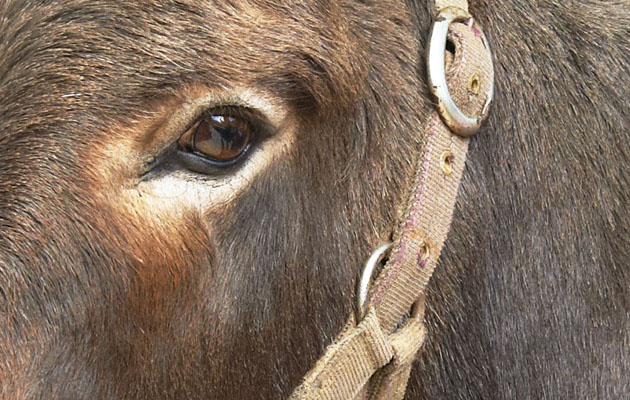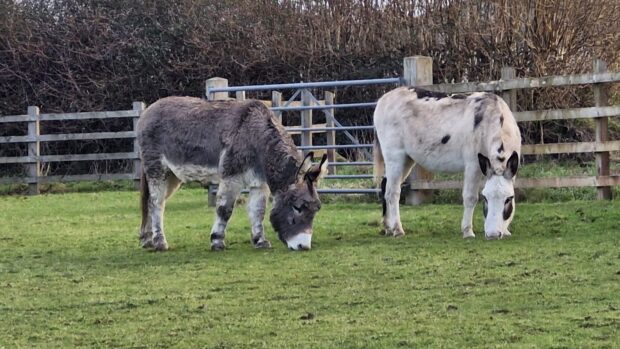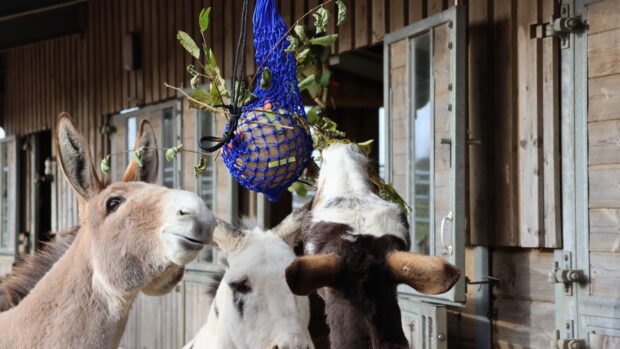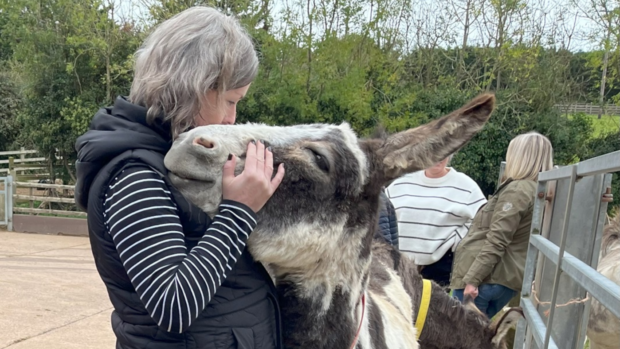An animal charity has called for a halt to the global donkey skin trade after finding shocking welfare concerns and suffering on a mass scale.
The Donkey Sanctuary has conducted an investigative report into the trade, titled Under The Skin, and has found that as many as 10 million donkeys are at risk.
It is lobbying for an immediate end to the trade until it can be “proven to be sustainable and humane”.
“We have seen reports of donkeys being skinned alive, being bludgeoned to death, being transported for long distances with no opportunity to rest, feed or drink,” said Alex Mayers, the charity’s international programme manager.
“The welfare of any donkey, both during and at the end of its life, is paramount and should be the primary concern, as for any food-producing animal.
“Sadly the welfare of donkeys used to produce skins and meat is frequently reported to be ‘severely compromised’ during sourcing, transport and slaughter.”

A rise in demand for ejiao — a traditional Chinese medicine that uses gelatin from the hides — is thought to be behind the hike in the donkey skin trade.
The report, published yesterday (Monday, 30 January), reveals the trade has resulted in an “explosion” in the number of donkeys from Africa, Asia and South America being sourced, stolen and slaughtered for their skins.
It claims that both the illegal and legal trade is resulting in a “chain of welfare issues”.
Article continues below…
Related articles:
Burkina Faso and Niger have banned donkey hide exports, and the charity is concerned the huge demand could also have a negative impact on the people who rely on the animals for their livelihoods.
“Donkey populations cannot continue to be decimated and communities must not be deprived of their only means of survival,” said Mike Baker, chief executive of The Donkey Sanctuary.
“Action must be taken now to curb this trade, in the interest of both animal and human welfare.”
The charity is calling for:
- A halt to the trade in donkey skins to produce ejiao until its impact can be assessed and shown to be both humane for donkeys and sustainable for the communities that depend on them
- Countries affected to ban the slaughter and export of donkeys for their skins
- Governments and the industry to help raise public awareness about the impact of this trade so ejiao consumers can make an informed choice
- Governments and local authorities to join efforts and support affected communities, protecting them from the illegal trade and preventing the decimation of donkeys through the legal trade
Read the full report here





